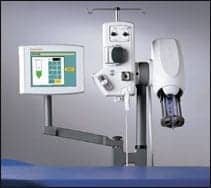The results are in. Read on to see how your salary and benefits package measures up.

Not only am I getting along great but also enjoy the decent wage (which will only increase). The benefits are good, and the diverse service schools and continuing education opportunities are great,” writes a Minnesota biomed on his first job and less than a year out of technical school. A veteran with more than 16 years’ experience in the field recently changed jobs and now claims to be “ecstatic about my present salary and benefits!”
Alas, these positive comments are in the minority. Most biomeds (if they commented at all) bemoaned their low salaries, lack of appreciation, and overwork. As one Massachusetts biomed with 11 to 15 years’ experience wrote, “I’ve worked for the same hospital for 11 years. Everything is constantly expanding [except for] our salaries and the number of techs. We have three biomeds and three rad guys. We’re considered ‘engineers’ by title because we maintain everything from infusion pumps to anesthesia machines—and provide tech support to the maintenance department on almost everything that has a circuit board. I believe our pay reflects [that for] a technician…with 2 years of experience.”
|
Certification |
Other Compensation [Some biomeds are compensated in more than one way.] |
|
Work Environment
|
A New Jersey specialist with 45 years in the “high tech” field comments, “It is sad to see the lack of appreciation (financially) for quality…work.”
Are biomeds overworked, underpaid, and underrespected? David Harrington, director of staff development and training at Technology in Medicine Inc, in Holliston, Mass, says that these complaints have been standard for years. He tells 24×7, “Far too many biomeds have not seen that the profession is changing and that the skills that made a good biomed 15 years ago are not that valuable now. The field has changed drastically, but those in charge have not made the necessary changes. Far too many managers still want to function like they did when they broke into the field: electrical safety testing and preventive maintenance inspections and stick with the cardiovascular equipment. They claim, ‘Lab and imaging equipment is for the specialists to fix, so don’t learn those technologies.’”
Harsh? Let’s see. There were 418 responders to the survey, and 14% have been at their present jobs for 11 to 15 years. Of these, fewer than one-half had certification of some sort.
Salary Survey Pertinent FindingsDemographics
Compensation and Benefits
|
Another bone of contention seems to be that inexperienced biomeds are making as much as those who have experience. Roger Bowles, MS, CBET, master instructor, biomedical equipment technology at Texas State Technical College in Waco, says, “Yes, entry-level BMETs are making much more than they used to. Our grads are starting out with average salaries of [more than] $30,000 per year. This has made it difficult to fill our two instructor positions, as the base level for an instructor is $34,000 and [candidates must have ] at least 3 years of BMET experience. Not many BMETs with 3-plus years of experience are willing to take a pay cut.”
C. Wayne Hibbs of Hibbs & Associates in Dallas agrees. “In many cases, new hires are making more than people in place for years, but in most cases, they are better qualified and better trained than is someone who has been doing the same job for years and has not kept up with technology, training, and continuing education is not worth more than they have been getting paid.”
Although there is dissatisfaction with low salaries and overwork, most responders receive some kinds of benefits. In addition to insurance, some have cars and educational opportunities. Only a few (50) participate in a profit sharing plan, but 83% report that they are enrolled in a retirement plan. One manufacturer-employed radiology technician in New York comments that in addition to standard benefits, he has a company-paid cell phone, laptop, pager, home-office phone, cable modem, company charge card, test equipment, and an appliance discount!
Only four respondents report that they are union members. All four have been in the profession for more than 16 years and have certification of some kind, but only one earns in excess of $60,000. Their benefits are comparable to those of biomeds working in nonunion shops.
Many biomeds are able to augment their salaries by working overtime and being on call. In fact, one radiology technician earns a base salary of $55,000 but takes home between $80,000 and $90,000. It is a mixed blessing, however. He writes to us, “The 80K to 90K salary is due to performing the work of 2 FTEs [full-time equivalent employees], including OT and on-call. I’ve been on 24-hour on-call since July 2002. The hospital has been unable to fill the vacant position. The biomed department is attempting to operate without a manager and administrative support staff. [Despite the wages,] I will likely be seeking employment elsewhere in the near future.”
While many biomeds are unhappy about their salaries, according to some respondents there are opportunities for advancement out there. An Oregon CBET working at a hospital in radiology reports seeing a very strong demand for biomedical and radiology-service professionals on the West Coast. He reports that the last open position at his facility took 18 months to fill. And finally, a field-service engineer in Pennsylvania exhorts biomeds, “Do not be afraid to change jobs and play on your experience. If that 2.5% pay raise is not satisfying, get out a few resumes. You may be surprised.”






